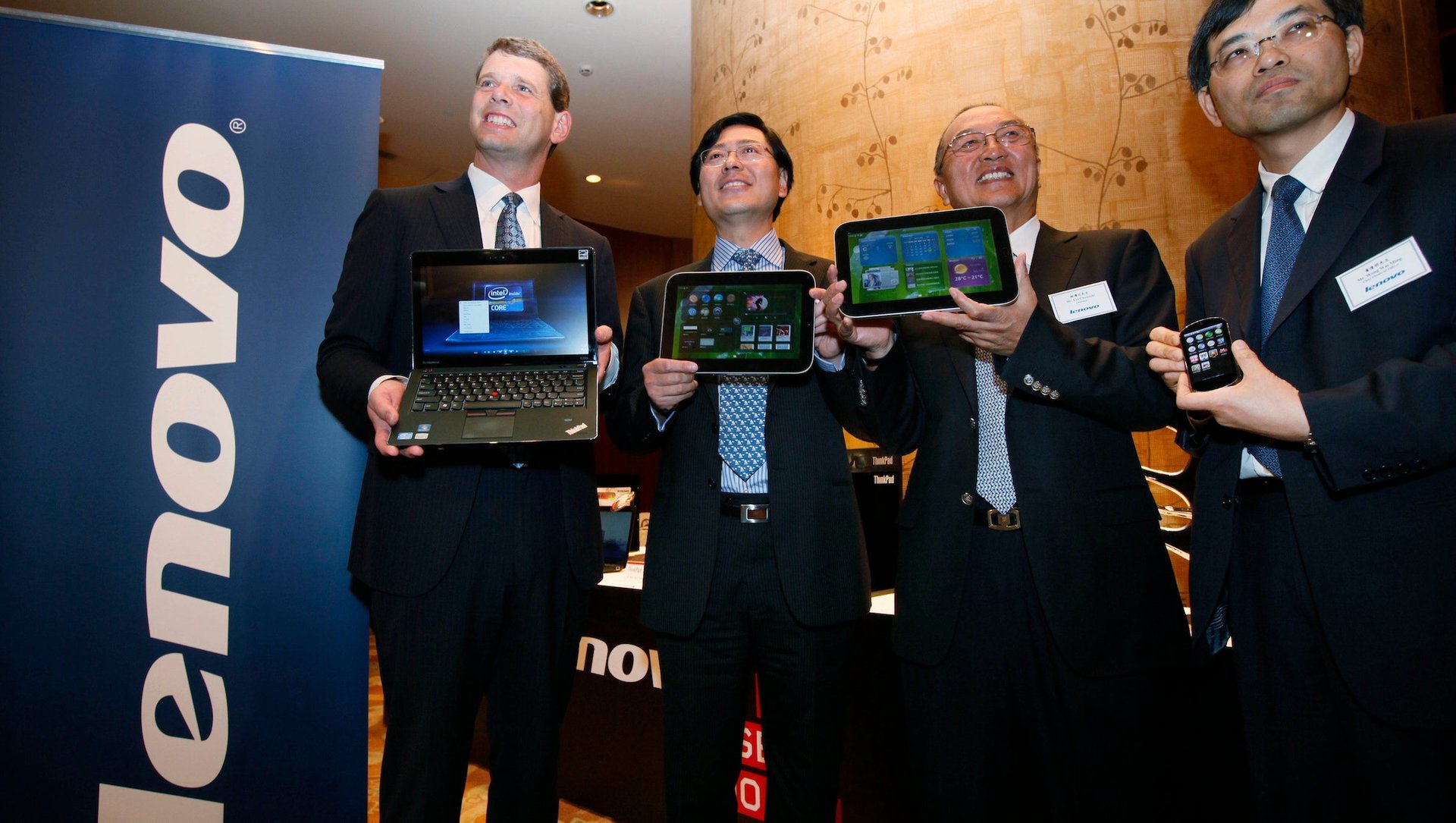Lenovo’s smarter M&A strategy helps it buck the declining PC sales trend
We’re awash in proclamations of the death of the PC, but you wouldn’t know it from the latest quarterly earnings of China’s Lenovo Group. The world’s second-largest maker of computers reported a surprising 90% bump in profit to $126.9 million, partly because it gained market share in PC sales. Lenovo now has a 15.3% share of the PC market, compared to Hewlett-Packard’s top spot of 15.7%.


We’re awash in proclamations of the death of the PC, but you wouldn’t know it from the latest quarterly earnings of China’s Lenovo Group. The world’s second-largest maker of computers reported a surprising 90% bump in profit to $126.9 million, partly because it gained market share in PC sales. Lenovo now has a 15.3% share of the PC market, compared to Hewlett-Packard’s top spot of 15.7%.
Both HP and Dell reported declines in PC sales that contributed to sharp drops in profit. Global PC shipments saw the biggest decline ever, falling by 14% in the first quarter, according to IDC research. Like HP and Dell, Lenovo has been diversifying away from PCs to help offset that trend, and the Chinese company ranks No. 2 in smartphone sales in China.
But Lenovo has also been smarter than its rivals when it comes to its PC strategy, including its deal tactics. Part of its plan has been to expand globally. Last year, Lenovo acquired Brazilian firm CCE, which came with distribution and PC manufacturing capabilities. In 2011, Lenovo acquired a distribution center in Germany. Those deals strengthened Lenovo’s PC business and helped it gain market share.
Lenovo’s two main competitors have seen their deals become headaches rather than winners. HP is still digging out from its disastrous 2011 acquisition of UK software firm Autonomy. HP had to write down about $9 billion in relation to the Autonomy buy, which has also led to investigations by US and British authorities over questionable accounting practices.
Dell has been mired in a soap opera ever since it announced a deal to sell the company to a group of buyers that includes CEO Michael Dell, private equity firm Silver Lake and Microsoft for $24.4 billion. The deal has drawn criticism from some shareholders for being too low. As a result, Dell has drawn a counterbid from Carl Icahn and Southeastern Asset Management, two of Dell’s largest outside investors.
Lenovo’s performance makes it harder for HP and Dell to blame declining PC sales for their woes. Lenovo has not only been able to gain market share in PC sales, it also managed to boost profitability—something HP and Dell haven’t done in the last six quarters. Lenovo shows that if you play your cards right, having a PC business doesn’t have to mean a death sentence.